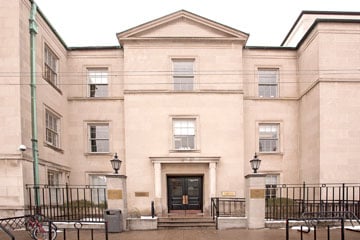
The Law Society of Ontario has initiated disciplinary proceedings against a real estate lawyer for allegedly misleading advertising practices.

The Law Society of Ontario has initiated disciplinary proceedings against a real estate lawyer for allegedly misleading advertising practices.
In a notice of application, the law society alleged that lawyer Shayle Rothman has used content on his website — RealEstateLawyers.ca — that has been “misleading, confusing, deceptive or likely to confuse, mislead or deceive.”
According to the allegations, Rothman pushed the boundaries of advertising rules, which have recently been tightened by the law society as part of a larger initiative to further regulate advertising practices and fees.
From October 2016 until around January 2017, his firm’s website contained false statements, claiming the firm had been serving Ontario and the Greater Toronto Area for 40 years and had successfully closed more than 35,000 transactions, the law society alleged.
The website also suggested that Rothman’s firm was larger than it is by listing four retired lawyers and claiming the firm has 32 locations across the province. The law society claims 29 of those locations are virtual office spaces or meeting locations.
In an email to Law Times, Rothman says this investigation was initiated by the law society internally, rather than by a client’s complaint, and that his firm has worked with the provincial regulator over the last several years to address marketing issues.
He says that his firm has always strived to ensure strict compliance with the law society’s Rules of Professional Conduct and that the regulator has no mechanism for assisting proactive lawyers who reach out for guidance to make sure their advertising complies.
“In our view, none of the allegations of the law society are reasonable, especially considering that this investigation is wholly internal and not initiated by a complaint from the public or a past or current client,” he says.
The law society recently approved changes to clamp down on misleading fee advertisements in the real estate law area.
The changes mean that fees real estate lawyers advertise must now be all-in prices. Real estate lawyers cannot add further charges for disbursements afterwards, unless those disbursements fall under a few specific exceptions. While the allegations against Rothman concern the rules that already existed before the changes, some real estate lawyers say the Rothman matter shows a recent push on behalf of the law society to boost its enforcement in the area.
Lawyers say there is no other area of law that is as price and fee competitive as real estate.
This means that some practitioners set particularly low fees. There are no rules against having fixed low fees, but problems arise when lawyers charge extras at the conclusion of a transaction. This misleads the public, abuses the system and causes an unlevelled playing field, lawyers say.
Speaking generally, Eldon Horner, past chairman of the Federation of Ontario Law Associations, says the advertising practices of some lawyers are just a symptom of a larger trend that is marginalizing the practice of real estate law into something people view as a commodity.
“That brings a risk to both lawyers and the public,” he says.
The law society alleged in its notice of application that Rothman’s advertising of fees, discounts and guarantees were not “reasonably precise” and could mislead, confuse or deceive the public.
It was unclear whether disbursements and fees were included in flat-rate legal fees Rothman advertised, as well as how they applied, the application said.
Rothman, however, says the firm’s fees and discounts are clearly posted on the website and that the marketing is in line with that of other real estate lawyers. He says the firm has asked the law society to approve marketing material on numerous occasions, but the response has always been that lawyers must self assess.
The law society also alleged that from October 2016 until January 2017, Rothman’s marketing materials advertised a specialization in Ontario real estate transactions when he in fact held no such certification from the law society. Rothman says he never held himself out personally as a specialist, but that the firm simply noted it specializes in real estate, as 90 per cent of its business is in that area.
The law society also alleged that Rothman had committed professional misconduct by using the firm name RealEstateLawyers.ca LLP despite a decision by a committee of benchers upholding a decision by LSO staff denying him certification of authorization from using “Real Estate Lawyers.ca Professional Corporation.”
The application also claimed that the firm’s name “suggests a directory of real estate lawyers in Canada, as opposed to one specific law firm providing real estate law services.”
Rothman, who is listed as the managing partner of his firm, says his firm’s name complies with the rules and that his firm holds a federally registered trademark for the name of the firm, which he says is “singularly unique.”
He adds that it is unreasonable to argue that the registered trade name is generic or merely descriptive and that the formal registration of the name means his firm is the only one in the country legally permitted to use the name.